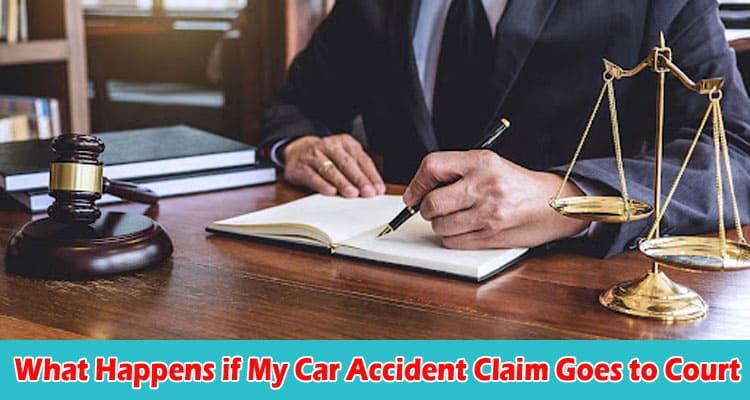A car accident is a life-changing experience since you may sustain physical injuries and mental and emotional anguish. It can potentially have financial and legal ramifications. You may be required to cover multiple expenses, including car repairs, medical bills, and even lost income. Getting into a car accident due to someone else’s negligence may enable you to seek a car accident settlement or court trial.
However, to file a case, you must first understand what happens when a car accident goes to trial. With the assistance of a professional and experienced personal injury lawyer in Sacramento, you may be able to settle your case directly with an insurance company or through settlement negotiations. Although this saves you and the other party more time and money than going to trial, it is nevertheless necessary for some circumstances. Continue reading to learn when and how your car accident lawsuit can be settled at trial.
Why go for settlement?
A settlement agreement is the shortest approach to resolving a legal issue. When both parties are willing to settle, they can save the time, effort, and money spent in court proving or defending their arguments. An auto accident settlement is an agreement between a victim and the party at fault or their insurance company, specifying the expected payment outcomes and indicated demands. Working with an expert auto accident lawyer in Sacramento to draft a settlement and negotiate payment will assist you in achieving your car accident compensation goals.
When do cases go to trial?
The case proceeds to trial if both parties cannot agree on a fair settlement and prefer to take the issue further. Remember that taking a lawsuit to trial is difficult, expensive, and tedious. Generally, a trial might last two or three months, but some can span years. However, it’s very unusual for a car accident lawsuit to get to trial since most insurance companies prefer to settle a claim as soon as possible.
What happens at trial?
When you sue the other motorist who caused the accident, the court will consider whether or not that person should be held legally accountable for the losses you experienced. While in the trial, you’ll need to state your case to secure a favorable judgment. The other motorist will also be allowed to offer their version of the event.
A full court hearing for a car accident case usually consists of the following stages:
-
Jury selection:
In most states, the jury resolves the issues in the car accident lawsuit. They consist of 12 members, but they can also have fewer. The judge asks each potential juror a few questions to determine whether they have any prejudices or biases that would compromise their judgment.
-
Each party’s opening statements:
After selecting the jury, the attorneys on both sides will make opening remarks, which are opportunities to provide the facts of the case and a synopsis of the parties’ arguments.
-
Cross-examination and witness testimony:
During this phase, the parties submit evidence to the jury, including witness testimony. Attorneys might interrogate the witness on the stand to find out what they know.
-
Each side’s closing arguments:
Once you present all evidence to the jury, both sides will make closing arguments to persuade the jury to rule in their favor.
-
Judge’s jury instructions:
After collecting the facts, the judge will advise the jury on how to conclude the case while informing them about the applicable laws and their obligations as jurors.
-
The judgment and jury deliberation:
The jury will then go to a courtroom to deliberate. Although there’s no time constraint, reaching a decision usually takes many hours, if not several days.
Related Article – How Do I Defend My Car Accident Lawsuit?
Consult with a professional attorney to explore your legal options!
Before filing a case, you should investigate your legal choices to determine which might save you the most money and time. Consulting a personal injury lawyer immediately after the accident is critical since the trial process takes time, and there are time constraints for bringing a case.







